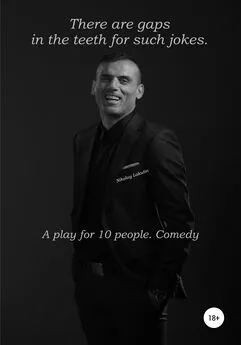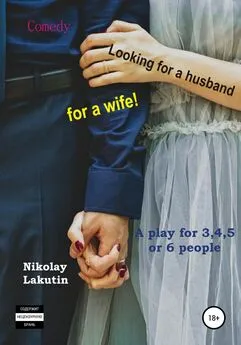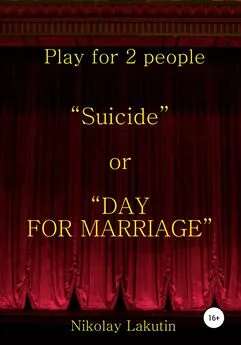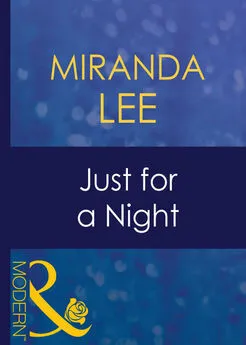Leo Frankowski - CONRADS QUEST FOR RUBBER
- Название:CONRADS QUEST FOR RUBBER
- Автор:
- Жанр:
- Издательство:неизвестно
- Год:неизвестен
- ISBN:нет данных
- Рейтинг:
- Избранное:Добавить в избранное
-
Отзывы:
-
Ваша оценка:
Leo Frankowski - CONRADS QUEST FOR RUBBER краткое содержание
CONRADS QUEST FOR RUBBER - читать онлайн бесплатно полную версию (весь текст целиком)
Интервал:
Закладка:
The clock said it was a half hour past dawn when I started working on the oven. There was clay to be found in the stream, and there were plenty of flat limestone rocks around. With a bit of help from Zbigniew carrying over the biggest ones, I had the oven almost completed by three.
What you need to bake bread is a hot hole in a rock. The easiest way to make one is to build something like a very deep bookcase out of flat rocks, seal it up as well as you can with clay, and then bury everything but the front of it with dirt. The one I made was big enough to bake a dozen loaves at a time.
To use it, you build a fire inside each of the holes until the whole oven is hot enough. Then you put the risen bread dough in using a long paddle, and close up the front holes with some more flat stones. If you've done it properly, the bread will be baked, but not burned, before the oven gets cold. Knowing how to do this exactly right is called "skill."
I got some bread dough mixed and rising and then cooked lunch for the two of us.
My lunch partner refused to talk about whatever it was that he had done to merit spending the day building an outhouse, but he would talk about the outhouse that he was building.
Zbigniew's plans for the outhouse were a little on the grandiose side, a small log cabin made out of thin logs. It would be light enough to move when the shit hole filled up, but with all of the joints cut wedge fashion, it would be sturdy, especially since all of the joints were to be carefully lashed together.
I didn't think there was any hope of his finishing by evening, so once I got the oven built, and small fires going in each of the baking holes to slowly bake the clay and heat the thing up to bread-baking temperature, I went over to give him a hand.
By seven o'clock we had seen no sign of the others, and the sun was still disconcertingly high, but I put the bread in to bake, and since I was fussing about the kitchen, I cooked supper as well, a stew made of dried beef, carrots, and potatoes.
By eight o'clock the food was done and in danger of either getting cold if I took it off the fire, or of burning if I didn't. I called Zbigniew over to eat, since it didn't make sense to ruin our supper, even if the others were late. I told him I was worried about the other men in our lance.
"One team could have gotten into trouble, but not all three," he said. "The sun is still high. They have plenty of time."
I said it was after eight o'clock.
"Then there must be something wrong with that clock. The sun isn't anywhere near setting. Look. Just put the stew and this good bread you made into one of the empty cases, and it will stay warm enough for the others once they get back. For now, come and help me with the latrine. With two of us working, we might get it done before sunset."
I asked him again what he had done to offend Sir Odon, and this time, since I was helping him, he told me.
"You know that yesterday's latrine was just a small trench with a couple of flat rocks on either side of it. Well, when I used it last night, I found that it was infested with stinging ants, so I dragged the two rocks a few yards farther back and used them there."
I asked why Sir Odon should be angry about that.
"Because he used the latrine right after me. He could see the white limestone rocks in the dim moonlight, but he didn't notice the old trench, which he stepped in."
I laughed and said that was Sir Odon's fault, not his.
"I agree," Zbigniew said, "but Sir Odon thought I was playing the old outhouse joke on him, you know, where you pick up and move the whole outhouse back a yard, so the next person out there falls into the shit hole, which is usually about neck deep."
I laughed and said that Sir Odon sometimes takes himself too seriously, even if Zbigniew had tried to dirty his boots.
"But I didn't do it on purpose, and our noted leader wasn't wearing his boots."
I said that just made it funnier, and Zbigniew didn't answer. Then I said now we knew why Sir Odon wanted a really sturdy latrine. He wanted it to be too heavy for Zbigniew to move, without the help of his friends, anyway.
"I suppose you're right, but we'll have to wait a few months before we can do anything about it. We can't have him falling into a dry hole, after all."
Well, we had everything done except the roof when Sir Odon and Father John got back. I told them about the food in the box, and we made a fair start on getting the outhouse thatched by sunset.
The others had gotten back safely by then, and were complaining about the cold food when we joined them.
"Blame it on a broken clock," Zbigniew told them. "Josip cooked your dinner according to the clock that was set this morning. I just looked in on it, and it claims that it is half past ten right now."
"The nights are short, this time of the year, but that's ridiculous," Sir Odon said. "Leave the clock running and we'll see how far it's off at sunrise. Maybe we can adjust it. I take it that nobody found any trace of the inhabitants of this fair land?"
Two pairs of heads shook no, they hadn't seen anybody.
"I'm still feeling tired, for some reason," Father John said. "But it doesn't seem to have affected my work. We mapped two dozen miles of river today, and then walked the whole way back. That's quite an accomplishment."
Fritz and Lezek said that they had each done almost as much. I said I was as tired as I had ever been, and that I was going to sleep.
Sir Odon warned me that I had the fourth watch, and I made Fritz promise to wake me.
I woke with Fritz shaking my arm and the sun in my eyes. I jumped up and asked why he hadn't woken me on time.
"I am waking you on time," Fritz said. "You have had only three hours of sleep."
I said I was confused.
"Sir Odon's orders. Daybreak now happens four hours after sunset, no matter what the sun feels like doing."
I must have still looked befuddled, because he continued, "Look, just stay awake for an hour and then wake everybody else up, including me."
I got up, Fritz went to sleep, and the first thing I did was walk over to the clock in the mess tent. It said it was half past one.
I had breakfast ready for the others when I woke them at half past two. Sir Odon got up, went over to the clock, and reset it to zero.
Then he said, "Good morning, Josip. Thank you for getting breakfast ready."
I asked him to explain what was going on.
"Wait until the others get here. There's no point in going through this twice."
Once we were all together, he said, "Last night was clear enough for me to shoot a sighting on the North Star. We are very far north. In fact, we are only about four dozen miles south of the Arctic Circle. Also, we are only a few weeks away from the Summer Solstice. This means that in a few weeks' time, if we go just two days' march north of here, the sun will never set at all. We will be in the Land of the Midnight Sun.
"Furthermore, the nights here and now are so short that we will fall over dead of exhaustion in a few weeks if we try to sleep only when the sun is down. Therefore, until further notice, we will wake up four hours after sunset, since I think that we would have trouble falling asleep when the sun is still up. Sunset is now at eight o'clock, and the first sentry sets the clock."
"So that's why we were all so tired," Father John said.
"Of course. If you work eleven hours every day and sleep only one, you will be tired. The fact that we all did that without noticing it proves that people have a very poor sense of time."
Lezek said, "Lord Conrad once wrote that it was possible to build a clock so small that it could be worn on your wrist, but I've never heard of anyone who actually made one."
"We certainly could have used one these past few days," Sir Odon said. "Now then, I want to be north of here to see this Midnight Sun business. We've read about it, but we could be the first men in the entire army to see it. But before we can go, there are some things that must be done around here first."
"Then what should we do?" Father John said.
"I would like to see at least two more scouting patrols made, one to the northwest and one to the northeast, so we can be sure that there aren't any people around here. We need to get a medium-sized garden going, to see what varieties of plants can be grown here, and to get some fresh food on the table. We need to get a radio antenna up so we can report in, and the same pole might as well serve as a flagpole. Can anyone think of anything else?" Sir Odon asked.
"I think we will need a very sturdy door made for the mouth of the cave," Kiejstut said, "something strong enough to discourage a bear, since I don't want us to lose our winter's food supply while we're gone."
"Good idea. Any other thoughts? No? Then how about if Josip and Kiejstut head northeast, and Taurus and Zbigniew go northwest. Fritz, you get started on a garden, Father John and I will take care of the antenna, and that leaves Lezek to worry about the door for the cave. You fellows on patrol, try to bring back some fresh meat, if you can do it without bothering the locals."
Kiejstut said, "What locals?"
"Just don't shoot somebody's cow. Well, let's get going."
Chapter Sixteen
From the Journal of Josip Sobieski
WRITTEN FEBRUARY 3, 1249, CONCERNING MAY 28, 1248
DUE TO some near fatal hangovers and a fouled-up railroad connection, Kiejstut and I had both missed the one-day course they'd given on the folding kayak. Fortunately, the thing went together easily enough. Folded, it looked like a six-yard-long bundle of sticks wrapped in canvas. You simply inserted three vaguely oval-shaped ribs in the right places, gave them a twist, and it popped out and became a lightweight boat that was pointed at both ends, and could hold three men in a pinch.
The double-ended paddles were strange, but easily mastered.
We crossed the icy cold river, beached the kayak, and hid it under some bushes. Then, packs on our backs, weapons loaded, and our hearts light, we headed out looking for adventure. What we found were mostly hills, small bushes, and a vast number of carnivorous insects.
"I am rigorously opposed to this business of being in the middle of the food chain!" Kiejstut complained, swatting at the bugs. "In my family, we always sat on the top of the chain."
I recommended chastising them for their lack of respect of his exalted station in life.
"Chastise them? I am already slaughtering them by the thousands! What else can I do?"
I suggested attempting to engage in a meaningful conversation with them, but his only reply was to throw a rock at me.
We had no luck in finding any people, but were more successful when it came to fresh meat. Kiejstut and I each managed to shoot a deer.
I was walking far in the lead when Kiejstut waved me to take cover. He had the rifle and lay down behind a bush while two small bucks slowly came within range. I stood behind a tree far to his right, watching and waiting. When they came within nine dozen yards, he fired, and his marksmanship was absolutely perfect. Shot through the heart, the buck fell backward without a sound or further motion.
The second buck sprang up and started running, and it had the bad luck to run straight at me. I was surprised, but I had the presence of mind to draw and cock my pistol. The animal didn't see me until it was only about a dozen yards away. It turned and offered me a perfect side shot. One does not often get the opportunity to brag about having felled a deer with a pistol, so I fired. The buck went down, but when I got to it, it was still alive. I drew my bayonet, held back its head, and cut its throat.
Читать дальшеИнтервал:
Закладка:

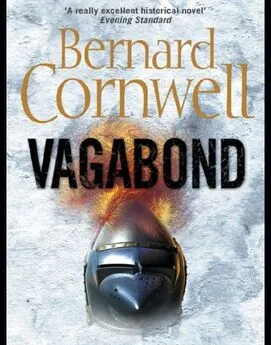
![Робин Хобб - Странствия Шута [Fool’s Quest]](/books/1086209/robin-hobb-stranstviya-shuta-fool-s-quest.webp)
